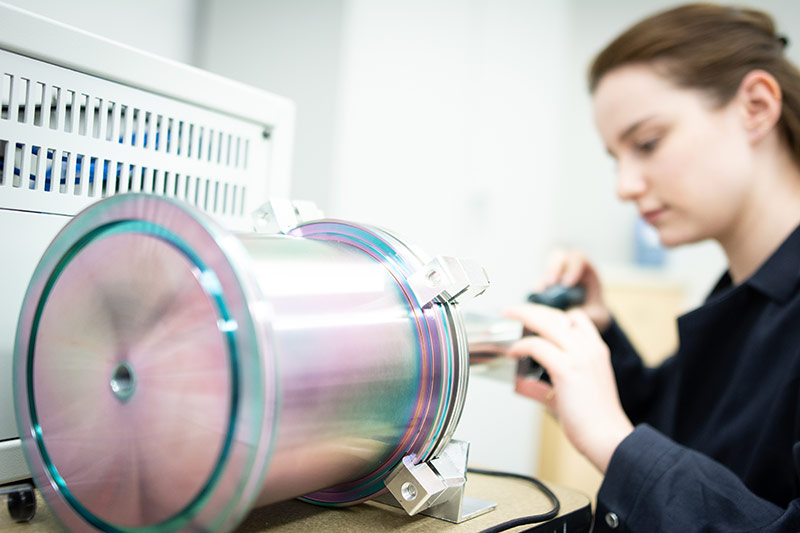NB-IRDT to analyze economics of Picomole lung cancer screening tool
Author: UNB Newsroom
Posted on Jan 12, 2021
Category: UNB Fredericton

The New Brunswick Institute for Research, Data and Training (NB-IRDT) at UNB is leveraging its expertise and research capability to undertake an economic evaluation of the Picomole lung cancer screening tool.
Picomole, an innovative medical technology company located in Moncton, creates machine learning solutions that can be used in disease screening applications. Picomole’s breath analyzer is able to measure gaseous samples down to the parts per trillion. The company’s machine learning software uses the data for the purposes of disease screening and Picomole is currently developing a screening model for lung cancer.
“NB-IRDT’s contributions to this economic evaluation are twofold. The first step will be for the institute to complete a complex cost-benefit analysis of Picomole’s new healthcare innovation. We will also be harnessing the power of our vast administrative data to identify the real-world impact of this technology in New Brunswick,” says Dr. Ted McDonald, director of NB-IRDT.
With funding through the New Brunswick Innovation Foundation (NBIF) voucher program, NB-IRDT will conduct a cost benefit analysis of the Picomole technology for detection of lung cancer, measuring against a baseline recommended approach of low dose CT screening for diagnosis. The analysis will involve the development of a predictive cost-benefit model that allows for economic evaluation across a range of hypothetical screening scenarios including reactive and preventative screening approaches. It will also involve analysis of linked clinical data through the NB-IRDT secure data repository.
“With the help of Dr. McDonald, NB-IRDT, UNB and NBIF, Picomole will be able to further understand the economic benefits of our lung cancer screening solution when compared with the legacy technology that is the low dose CT scan,” says Dr. Stephen Graham, Picomole CEO. “We are grateful for the opportunity to work with academic and funding partners and are excited to have NB-IRDT conducting this analysis. Having the University of New Brunswick in Picomole’s home province is an invaluable asset, and we look to continue to collaborate with our many great local institutions as we continue to develop ground-breaking technology.”
Having a screening solution with improved accuracy at a lower cost will not only reduce health care burden, but change the lives of patients. A commonly cited problem with the low dose CT scan is that there is a high rate of false positive tests. A false positive test can result in patients undergoing an invasive, expensive biopsy. Biopsies can lead to unforeseen long-term health issues and create congestion in the system, resulting in longer wait times for all patients.
Receiving false negatives through the low dose CT scan can result in patients remaining undiagnosed, potentially seeing negative affects to their long-term survival rate and requiring more invasive and expensive treatment options.
With the research that Dr. McDonald is doing, Picomole will be able to quantify the increased value of its technology as it demonstrates improvements to the accuracy of the technology, as measured by decreasing false positive and false negative results.
Media contact: Kelsey Pye
Photo credit: Picomole
